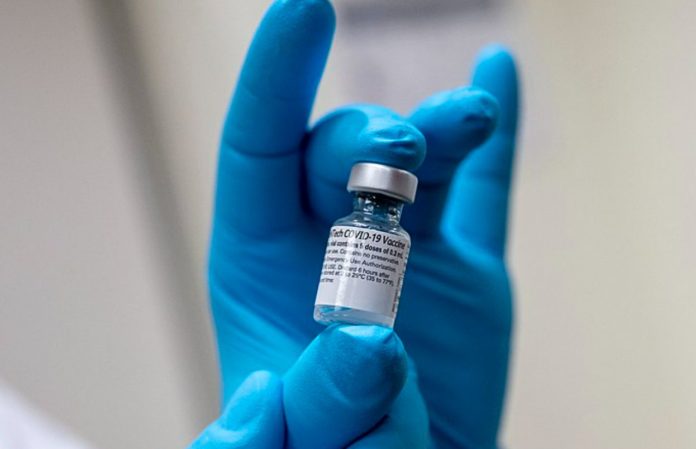Some people may be reluctant to get vaccinated against COVID-19 if they have experienced childhood trauma such as mistreatment, domestic violence, or substance abuse, according to UK scientists
Vaccine reluctance was three times higher in those who had experienced four or more types of trauma as a child than in those who had not, says the new study.
Adversity in childhood is highly linked to poor mental health. Mistreatment as a child has also been linked to a loss of trust in later life, including in health and other public services, according to some studies.
To dig deeper, the researchers wanted to see if childhood trauma was associated with contemporary levels of trust in health-care information, support for and adherence to COVID-19 limitations, and intention to get vaccinated against the virus.
They based their findings on responses to a nationally representative telephone survey of people residing in Wales between December 2020 and March 2021, when COVID-19 infection restrictions were in place.
The responses of 2285 people who matched all of the eligibility criteria and answered all of the questions were included in the final analysis, out of a total of 6763 people contacted.
Physical, verbal, and sexual abuse; parental separation; exposure to domestic violence; and living with a household member with mental illness, alcohol and/or drug usage, or who was in prison were all topics covered in the study.
It also gathered personal information and experiences with long-term health conditions, as well as levels of trust in healthcare providers’ COVID-19 knowledge and views toward COVID-19 limits and immunization.
Around half of the people surveyed (52%) indicated they had never been through any kind of trauma as a child. However, 1 in 5 people stated they had had one type, 1 in 6 (17%) said they had experienced two or more, and 1 in 10 (10%) said they had experienced four or more.
Respondents who had little or no faith in NHS COVID-19 data and thought government restrictions were extremely unfair were more inclined to support the urgent ending of social distancing and mandatory face-covering rules.
They were also more likely to admit to breaking the rules on occasion and to express fear or refusal to be jabbed.
For example, four out of ten people who said they didn’t trust NHS COVID-19 information also said they were hesitant to get vaccinated, compared to only 6% of those who did trust this source of information.
And, compared to about 1 in 4 of those who trusted NHS COVID-19 information, a comparable number of those who didn’t trust this source admitted to breaking the rules on occasion.
Increasing rates of childhood traumas were linked to a lack of trust in NHS COVID-19 information, a belief that government limits are unfair, and a desire to abolish mandated face covers.
Those who had suffered four or more types of childhood trauma were four times more likely to support removing mandatory face coverings than those who stated they hadn’t. This position was also substantially related to younger age, male gender, and no history of long-term problems.
A desire to end social distancing was also linked to having experienced four or more types of childhood trauma.
The likelihood of admitting to flouting COVID-19 restrictions occasionally rose in tandem with the childhood trauma count.
It was around twice as high among those who had experienced 4 or more types of trauma as it was among those who hadn’t experienced any—38% vs 21%—after accounting for associations with sociodemographic factors and previous COVID-19 infection or a history of long term conditions.
Vaccine hesitancy was also 3 times higher among those with a childhood trauma count of 4 or more and higher in younger age groups.
Based on all their findings, the researchers estimated the likely rates of vaccine hesitancy according to childhood trauma and age: these ranged from around 3.5% among those aged 70 and above with no experience of childhood adversity, to 38% among 18–29 year olds who had experienced 4 or more types of childhood trauma.
This is an observational study, and as such, can’t establish cause. And the researchers acknowledge several caveats to their findings.
Although in line with telephone surveys, the response rate was only around 36%, and the findings relied on personal recall. Women were also overrepresented, while the numbers of people from ethnic minority backgrounds were underrepresented.
But the researchers point out that people who have experienced childhood trauma are “known to have greater health risks across the life-course. Results here suggest such individuals may have more difficulty with compliance with public health control measures and consequently require additional support.”
This is important not only for the current pandemic but for other public health emergencies arising in the future, they suggest.
“A better understanding of how to increase their trust in health systems and compliance with health guidance is urgently required. Without consideration of how best to engage such individuals, some risk being effectively excluded from population health interventions, remaining at higher risks of infection and posing a potential transmission risk to others.”
Source: 10.1136/bmjopen-2021-053915
Image Credit: Getty
You were reading: COVID vaccine hesitancy: Childhood trauma may make people more wary of COVID-19 vaccines
